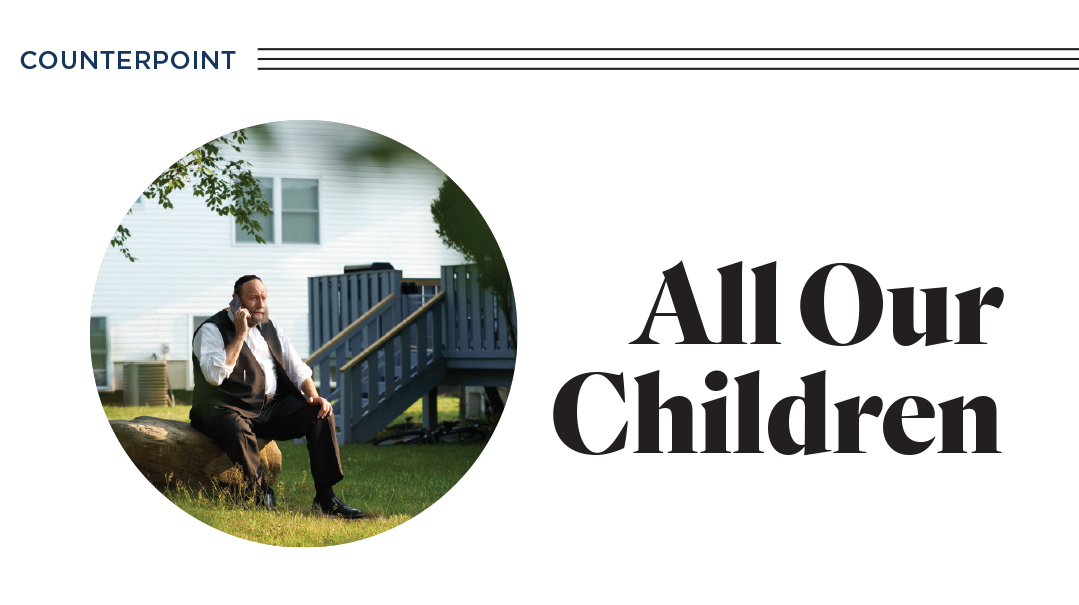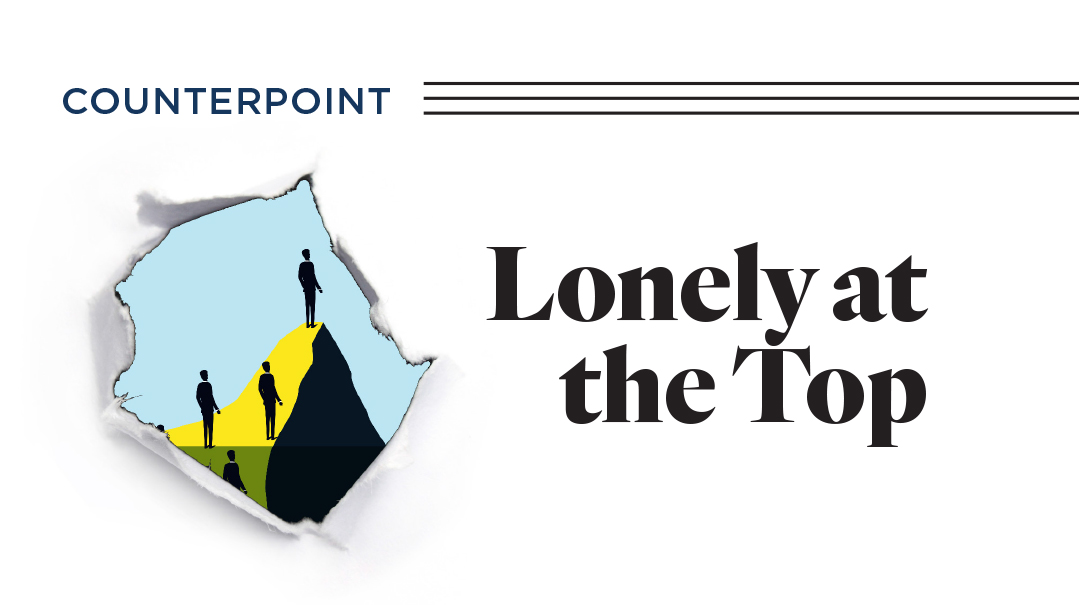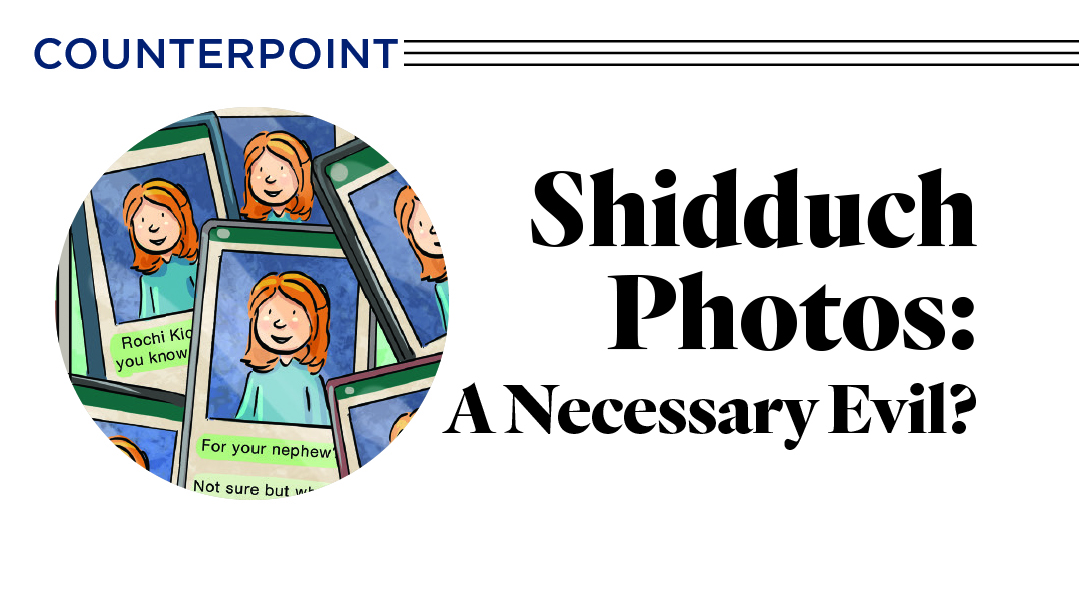Behind the Gadol Is a Great Person

What counts is integrity to self, to be genuine and actualize personal potential

Growing up, I always knew I was related to one of the poskei hador. But he was a shadowy enigma of a figure, as I’d never met him. Besides, I was a regular, normal person, not the type for gadol hador connections.
It wasn’t until I came to seminary in Eretz Yisrael that I met Reb Zalman Nechemia, my mother’s first cousin. My imagination could not have prepared me for the diminutive man who greeted me with a casual cardigan draped over his shoulders and a twinkle in his blue eyes. “Ah! We have chashuve company from America,” he said, with a broad smile.
Although I was tongue-tied, it wasn’t moments before I was seated at the large dining room table, a mug of tea in my hands and a warm, contented feeling in my heart. I immediately felt accepted as one of the family and an instant bond was formed.
Reb Zalman Nechemia kept me entertained with stories of my grandfather and my mother, many of which I’d never heard before. When my mother’s family left Eretz Yisrael to move to the United States in the early 1950s, Reb Zalman Nechemia accompanied my mother’s family to the airport. On the way, the van they were traveling in went into a ditch and turned over. They all climbed out of the van, and continued walking to the airport! Life was tough in those days, and when the car rolled over, you just got up and walked. He remembered how my grandfather once brought his family a small battery-operated car from America, an item inaccessible in Eretz Yisrael. But they couldn’t afford the battery to run the toy.
Throughout his reminiscing, Rebbetzin Rochel kept my hand in hers as she gestured, “All we are, our entire family, we owe to your Zeide Yosef.” My grandfather had been instrumental in helping his sister’s family escape the Soviet Union and the family never stops expressing their hakaras hatov for that salvation.
There was something captivating about the atmosphere; both the Rav and the Rebbetzin were warm, lively, charismatic people. And so grounded, down to earth, never any airs about them. What you saw was what you got and what you got was authentic simchas hachayim and a life governed by Torah with every breath they took. But Torah wasn’t a series of chumras, tensions, and a yoke of solemn responsibility. It was simply the sustenance from with they drew every breath, that fueled the dynamics of every action and reaction of their lives.
Most of the children were already married by the time I arrived on the scene, yet each new family accepted me with the same warm inclusion that characterized their parents. I spent Shabbosim at the Goldberg house, sharing a room with their youngest daughter, Yochi (Kushelevsky). Shabbos morning, Reb Zalman Nechemia would return home from shul and find us still sound asleep. He’d just walk to the table and start Kiddush. Within moments we’d tumble out of bed giggling, and he’d smile and finish the brachah.
During the Gulf War, my seminary dorm closed down and I moved in with Tzivia (Fuss), their second daughter. Watching her and her husband calmly wake up their children several times a night to don gas masks as sirens wailed taught me infinite lessons in chinuch, far more than any seminary class.
I returned to Israel every summer until I got married. Always, the Goldbergs were thrilled to see me, involved in the ups and downs of my shidduchim, rejoicing when I moved here. “Oy, how the Zeide Yosef is shepping nachas,” Rebbetzin Goldberg would say with a smile. “He came to Eretz Yisrael alone and now, look! Look at his family, how you’re raising Yiddishe children here!”
Every simchah we made, they were there. At my daughter’s chasunah, we gave Reb Zalman Nechemia a brachah under the chuppah. Like many Israeli chuppahs, it was a bit heimish, with several children crowding under the chuppah with us. My five-year-old had plopped himself down right on the floor in the front of the chuppah to get the best seat. Reb Zalman Nechemia was elderly at the time, and when he approached the chuppah it was difficult to walk by due to these front-row spectators. Yet characteristically, the Rav didn’t tell my son to move, and instead maneuvered himself carefully around him to approach the chassan and kallah. During the dancing, Rebbetzin Goldberg, despite her age, danced with my daughter for a long time. When my daughter thanked her so much for coming and staying, she answered with a twinkle, “Didn’t you invite me to the whole chasunah?”
My niece got married last year and my brother-in-law wanted to give Reb Zalman Nechemia a brachah under the chuppah as he had for his other children. He dropped by the house to personally invite the Rav and Rebbetzin and offered the Rav the kibbud. The Rebbetzin gave a sigh and said, “Chaval, the next morning the Rav has a medical procedure and will be fasting that night so it won’t work out.”
But Reb Zalman Nechmiah said firmly, “I’d like it to work out. We’ll rearrange the medical procedure.” That was the importance of family. He once commented that he didn’t understand why people had such a need to travel. “The most natural simchah in this life is that of simchas hamishpachah.”
He lived that precept. Years ago, when the news came that my great-uncle was being allowed to leave the Soviet Union, the details were unclear as to when exactly he would arrive. Reb Zalman Nechemia spent three full days at the airport in Eretz Yisrael to make sure he’d be on hand to greet his uncle. He appreciated family that much.
My cousin from America was learning here in Eretz Yisrael and was once accompanying Reb Zalman Nechemia down the street. As always, there was a huge entourage of people walking with the Rav and my cousin got pushed toward the back of the crowd. Suddenly, Reb Zalman Nechemia stopped and said, “Chaim, where’s Chaim?” All the people stopped as well, looking for this chashuve person whom the Rav was seeking. Like Kri’as Yam Suf, the crowd parted, Chaim took his place next to the Rav again, and they continued walking. Slightly embarrassed, he later asked one of the Goldberg sons why it was so important to the Rav that he walk beside him. The son looked surprised at the question. “Because you’re mishpachah!”
When my husband sat shivah for his mother, the Rav and Rebbetzin both came to our home outside Yerushalayim and were menachem avel my husband for an hour. We’re talking about a first cousin once removed through marriage… an hour-long shivah call?
This attitude of humility and warmth wasn’t only extended to family. My sister’s friend came from the States to visit her son who was learning in Eretz Yisrael. They were walking near the Goldbergs’ house, so my sister offered to take them in to get a brachah from the Rav. Despite the impromptu nature of the visit, the Rav spent a while speaking with the woman and giving her advice and brachos. Then he turned to the young yeshivah bochur and gave him a brachah to be successful in his learning, adding, “If you’d like, you’re welcome to write to me to ask me questions in your learning and I’ll answer you.”
It didn’t strike him as incongruous that he was one of the gedolei hador offering a young American bochur his personal time to help him grow in Torah.
The Rav extended this attitude of deep sensitivity to every human being regardless of stature. Years ago, my cousin was learning in Yeshivat Hakotel, (in what is now Netiv Aryeh) and had a weekly two-hour chavrusa with Rav Zalman Nechemia. Every week at the end of the learning session, the Rav would walk my cousin all the way down the steps to the main street and wait with him at the bus stop until a bus arrived.
My cousin relates how he saw so many people visit the Rav in his apartment, with a wide range of the great and the simple. The Rav would welcome each with the same honor, never dismissive of any. In today’s political era, he was a person who transcended those limitations. He davened in a Chabad shul near his house, was rosh yeshivah of a chassidish yeshivah, and served as a dayan for a science university, among his many other roles.
I once asked Rabbi Zev Leff shlita if I could bring a certain hechsher to my cousin. He explained that the kashrus of the hechsher was fine, but some had political reservations about it. He then asked who my cousin was. When I answered Rav Goldberg, he answered, “Oh, Rav Zalman Nechemia is above such things.”
The Rav would often describe a person as an adam yakar me’od — a precious human being. All human beings were precious to him. That view of humanity was so elevating.
That sums up the attitude of both the Rav and Rebbetzin. No pomp, no ceremony, only genuine people. My role models. I often think, this is what a Torah lifestyle is. This laughing and talking and sharing as a family, while discussing halachah, hashkafah, and chinuch. It’s not thinking it through, it’s being. With every facet of life.
Many of us will read a biography of a gadol, sigh, and close the book with a feeling of despondency. I don’t have the photographic memory or scope of knowledge of Reb Zalman Nechemia, nor the yichus of Rebbetzin Rochel. But I’ve learned from them that what counts is integrity to self, to be genuine and actualize personal potential. That’s true greatness, and as such, I too can be a gadol like my cousin. Yehi zichro baruch.
Originally featured in Mishpacha, Issue 831.
Oops! We could not locate your form.











